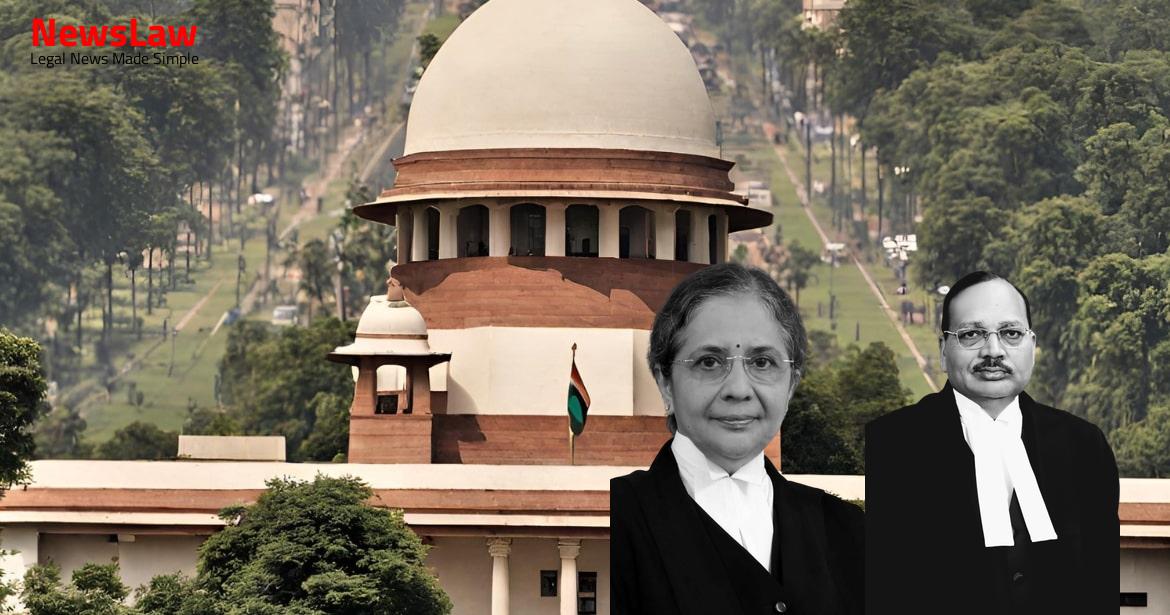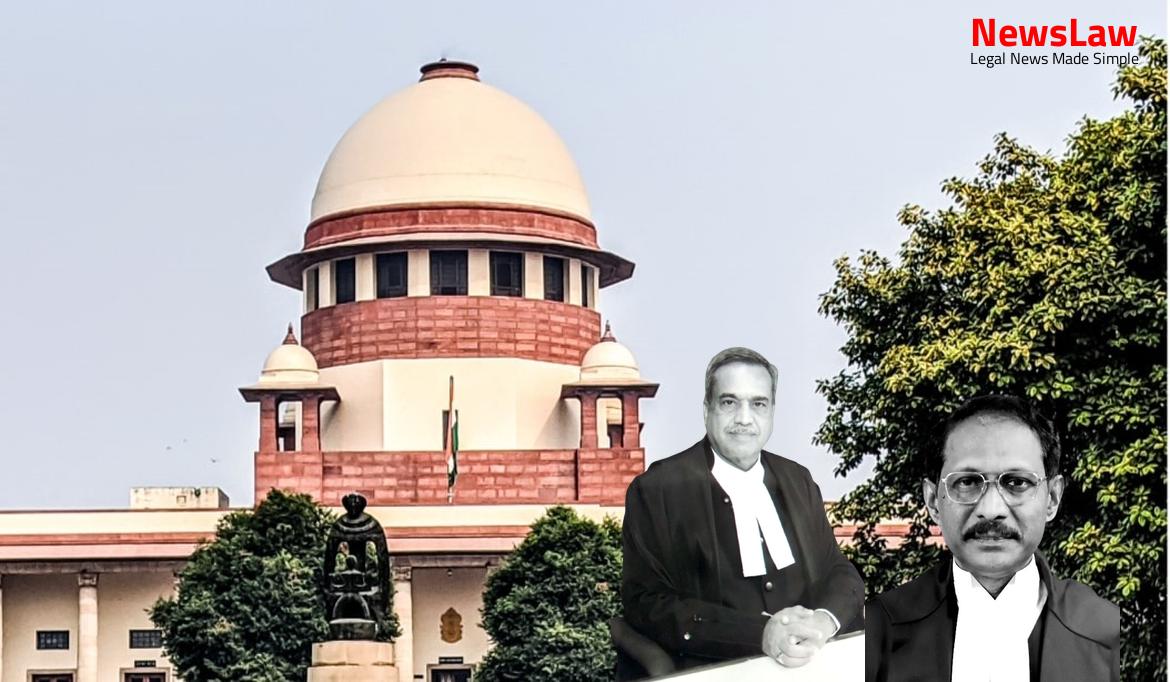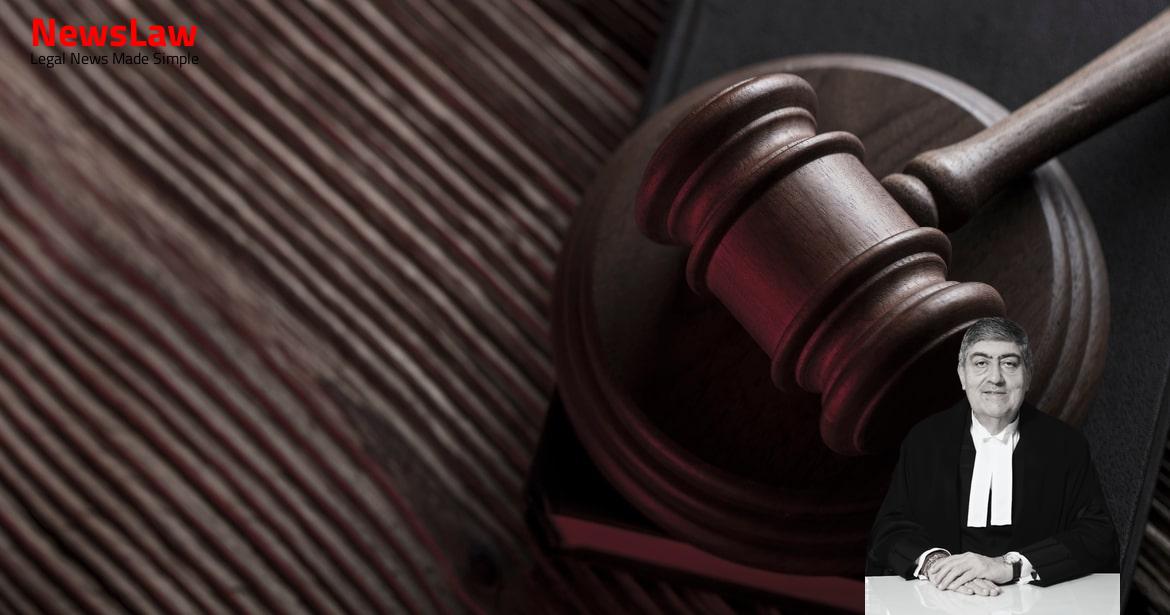Delve into the complex legal landscape surrounding disciplinary enquiries and the court’s jurisdiction in our latest analysis. The case under scrutiny navigates the intricate balance between criminal trials and disciplinary proceedings, shedding light on the legal principles guiding such matters.
Facts
- The respondent contended that the money seized was not a bribe but for repayment of a loan borrowed by the complainant’s brother-in-law.
- The prosecution examined seven witnesses during the trial before the Special Judge at Bijapur.
- The complainant mentioned meeting the respondent regarding the deletion of a name from the RTC for land in Survey No. 54.
- The charge against the respondent was that he demanded a bribe for deleting a name from Column No. 11 of the RTC.
- The Upa Lokayukta-1 recommended disciplinary proceedings against the respondent under relevant laws.
- The shadow witness provided a detailed account of the recovery of tainted notes from the respondent.
- The complainant was present during pre-trap and trap mahazar and signed off.
- A charge sheet was submitted against the respondent in the Court of Special Judge at Bijapur.
- The respondent mentioned the recovered amount was a loan advanced to DW1 during the disciplinary enquiry.
- The government entrusted the case to the Upa-Lokayukta for enquiry under specific rules.
- The Upa Lokayukta appointed an inquiry officer for framing charges and conducting the inquiry.
- Twenty-two exhibits were marked in evidence during the proceedings.
- A criminal complaint was registered against the respondent for offences under relevant sections of the Prevention of Corruption Act.
- The respondent challenged the penalty imposed by moving the Karnataka Administrative Tribunal.
- The High Court found that the disciplinary authority did not consider the respondent’s explanation properly.
- The High Court overruled the Karnataka Administrative Tribunal’s decision of compulsory retirement for the respondent.
- The respondent was a Village Accountant facing a disciplinary enquiry on charges of bribery.
- The Lokayukta recommended compulsory retirement for the respondent, which was challenged.
- The Tribunal and the High Court disagreed on the weight of evidence and the nature of the misconduct.
- The Division Bench of the High Court directed reinstatement without back wages or suggested an alternative punishment.
- During the criminal trial, key witnesses turned hostile, weakening the case against the respondent.
- The Special Judge’s previous acquittal influenced the disciplinary proceedings but did not determine the outcome.
- The disciplinary authority imposed compulsory retirement, which was contested in the High Court.
- The High Court analyzed the evidentiary material, the shadow witness’s testimony, and lack of corroborative evidence in its decision.
Also Read: Balancing Power and Transparency: Electoral Bonds Struck Down, Disclosure Mandated
Arguments
- An acquittal in a criminal proceeding does not prevent the exercise of jurisdiction in a departmental enquiry as per consistent legal precedent
- The finding of misconduct is disputed due to lack of application of mind and being perceived as perverse
- Brother-in-law of the complainant stated that a loan of Rs. 5000 was received from the respondent for manure purchase
- Respondent’s defense was that the Rs. 5000 given was a hand loan to the brother-in-law of the complainant, and the repayment was demanded and accepted
- Inquiry officer overstepped authority by recommending the quantum of punishment
- Respondent has been out of service since 11 May 2011
Also Read: Recall of Resolution Plan Approval: Legal Analysis
Analysis
- The acquittal of the accused in a criminal case does not prevent the employer from pursuing disciplinary action.
- Disciplinary proceedings have different principles than criminal trials.
- High Court exceeded its jurisdiction by interfering in the disciplinary process.
- Presumption of innocence is granted to the accused.
- Cross examination did not reveal material inconsistencies.
- Disciplinary charges need to be established on a preponderance of probabilities.
- In this case, evidence supported the finding of misconduct.
- Witness testimonies were crucial in establishing the misconduct.
- Relevant material and principles of natural justice were considered in the disciplinary enquiry.
- Explanation provided by the respondent regarding the tainted currency notes was accepted against the possession claim.
- Karnataka Administrative Tribunal upheld the punishment of compulsory retirement.
- The enquiry officer found all six charges proved.
- The disciplinary authority agreed with the findings and imposed the punishment of reversion to a lower rank.
- The High Court observed that there was no evidence to hold the respondent guilty of the charge of bribery.
- One of the charges was that the respondent demanded a commission of 1% for paying the railway staff.
- The Court does not re-appreciate the evidence on which the finding of misconduct was arrived at during the disciplinary enquiry.
- In the exercise of judicial review, the Court must restrict its review to the rules of natural justice being followed.
- The enquiry was conducted in accordance with the principles of natural justice.
- The findings of the inquiry officer and the disciplinary authority are supported by the evidence presented during the enquiry.
- The acquittal of the respondent in the criminal trial does not undermine the authority of the disciplinary authority or the misconduct finding in the disciplinary proceeding.
Decision
- The appeals have been allowed and the judgment of the High Court of Karnataka at the Kalaburagi Bench dated 29 November 2017 in Writ Petition Nos. 202250-251/2016 has been set aside.
- The finding of misconduct and the punishment of compulsory retirement have been restored.
- No costs have been ordered, and the petition instituted by the respondent under Article 226 of the Constitution has been dismissed.
- Pending applications have been disposed of.
Case Title: THE STATE OF KARNATAKA Vs. UMESH (2022 INSC 322)
Case Number: C.A. No.-001763-001764 / 2022



